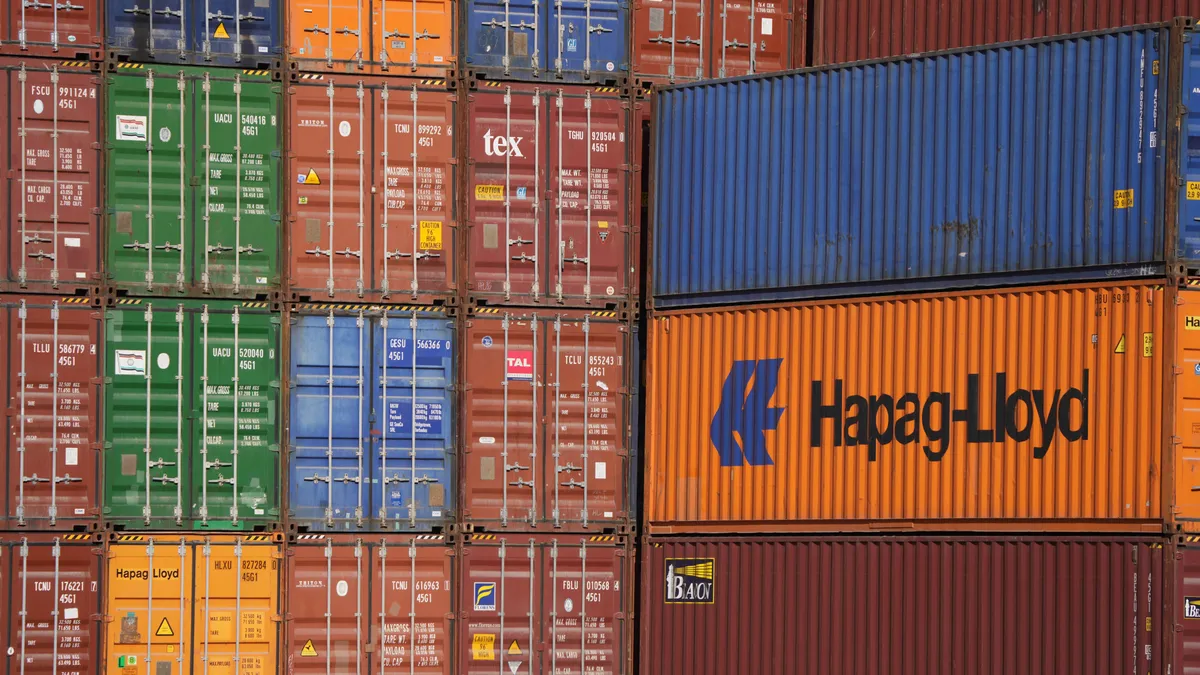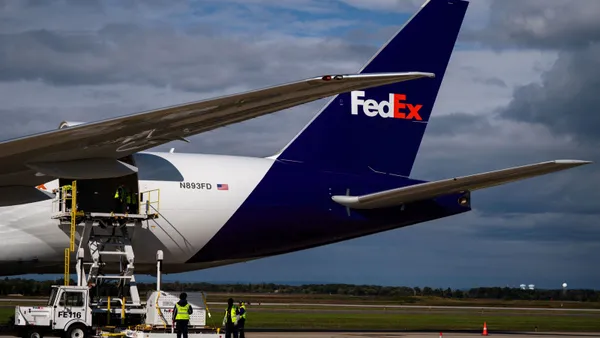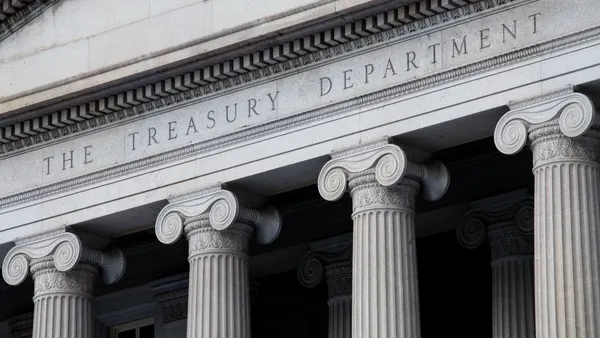Dive Brief:
- The highest tariffs since the 1930s have compelled 66% of U.S. companies to pass on as much as 50% of the costs to consumers, and 71% of businesses expect to hike prices by up to 15% in the next six months, KPMG found in a survey.
- Since President Donald Trump announced sweeping import taxes on April 2, gross profit margins at 39% of companies have fallen and 44% of respondents to a KPMG survey expect the decline to continue during the coming year. Sixty-two percent of companies have streamlined supply chains since Trump imposed the import duties.
- “Despite efforts to optimize supply chains, we continue to see profits decline due to increases in tariffs,” Brian Higgins, KPMG’s U.S. sector leader for industrial manufacturing, said in a statement. “Uncertainty is not going away,” he said, with 40% of companies pausing hiring because of the murky tariff outlook.
Dive Insight:
Trump administration tariffs will likely trim 0.5 percentage points from economic growth this year, and 0.4 percentage point in 2026, according to the Yale Budget Lab.
Over the long run, the economy on an annual basis will probably generate 0.4% less in output — a loss of $125 billion in 2024 dollars, the Yale Budget Lab said.
Consumers as of Sept. 26 face an effective tariff rate of 17.9%, which will push up prices by 1.7% this year and undercut average household incomes by $2,400 according to the Yale Budge Lab. Over the long run, apparel and leather prices will remain 11% and 12% higher, respectively, than without the import taxes.
The Trump administration has said tariffs have not raised prices, and asserted that any increase will be temporary.
Many economists overestimate the risk that tariffs will increase price pressures, Federal Reserve Governor Stephen Miran said on Sept. 22.
Miran last month took a leave of absence as Trump’s top economic adviser in order to serve out the final four months of a term as a central bank governor ending in January.
“Relatively small changes in some goods prices have led to what I view as unreasonable levels of concern,” he told the Economic Club of New York.
Fed Chair Jerome Powell and other policymakers say tariffs may push up prices temporarily, while cautioning that the central bank must ensure import taxes do not trigger a resurgence of inflation.
The impact from tariffs on prices has so far undershot forecasts, New York Fed President John Williams said last week, referring to estimates that import taxes have increased prices by roughly 0.3 percentage points to 0.4 percentage points.
“Underlying inflation outside of the goods affected by tariffs has continued to come down, but very slowly,” he said, adding that “it’s very hard to know exactly how the tariffs are affecting goods, how they’re affecting services.”
Sixty-three percent of U.S. companies are considering bypassing tariffs by reshoring operations to the U.S., KPMG said, noting that only 10% of survey respondents are taking action. Higher costs for labor and operations discourage such a move, along with the need for capital investment.
In the face of tariff uncertainty, roughly one-third of companies have trimmed payrolls by 1% to 5%, while 15% of respondents said they cut their workforce by 6% to 10%, KPMG said.
Only 23% of businesses believe tariffs will remain consistent, and 44% voice doubt or moderate confidence that the import taxes will remain at current levels, KPMG said.
KPMG surveyed 300 top executives at companies generating annual revenue of at least $1 billion. Respondents worked at companies operating in nine sectors, ranging from healthcare and technology to retail and life sciences.














